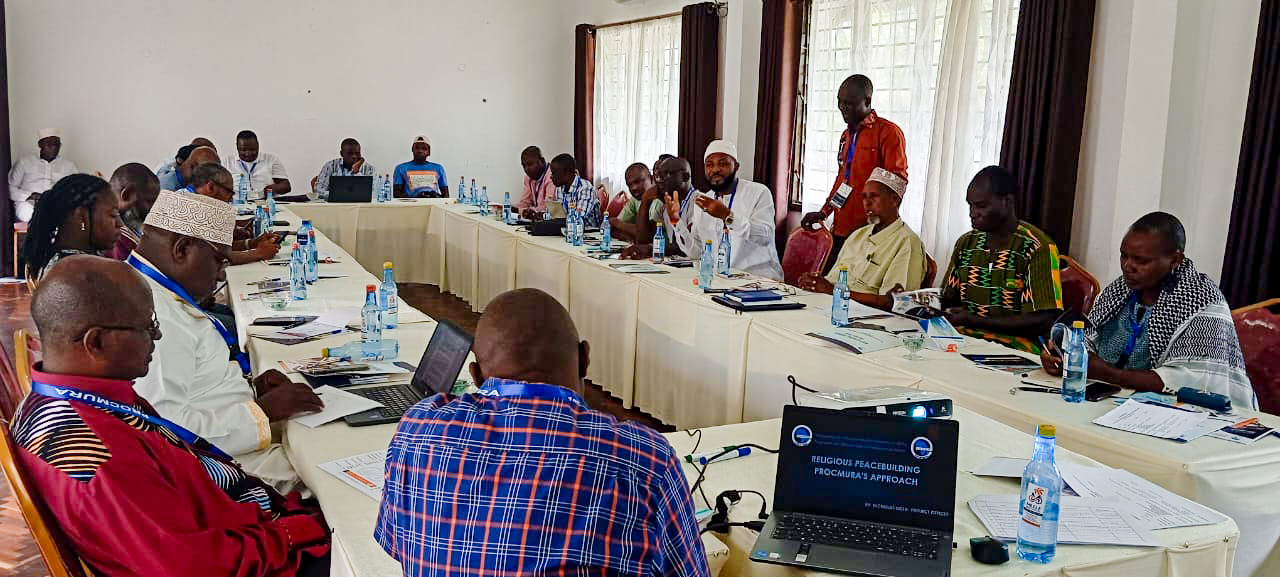
In a continent where conflicts often seem to make and dominate headlines, the role of peacebuilding initiatives cannot be overstated. More often than not, most of such conflicts implicate religion. Recognizing the critical need for interfaith harmony and sustainable peace, the Programme for Christian-Muslim Relations in Africa (PROCMURA) convened a two-day Peace Workshop that brought together Peace Actors and Peacebuilding Scholars from across Sub-Saharan Africa.
The workshop, a testament to the power of collaboration and shared purpose in peacebuilding, featured a series of keynote presentations that tackled some of the most pressing issues facing peacebuilding efforts and initiatives in Africa and inter-religious relations in relation to peacebuilding in Africa and at the world stage as well among other things.
The first day of the workshop set the ball rolling with an insightful session on "Religious Peace Building—PROCMURA's Approach" by PROCMURA’s Project Officer, Mr. Nicholus Dola. PROCMURA’s religious peacebuilding approach is anchored on the fact that religious leaders command a huge following and influence many aspects of our lives, and as a result, empowering them with skills and tools for peacebuilding will go a long way toward creating peaceful and harmonious communities. The approach addresses the prevention and management of conflicts and reconciliation and builds resilient communities capable of withstanding future challenges.
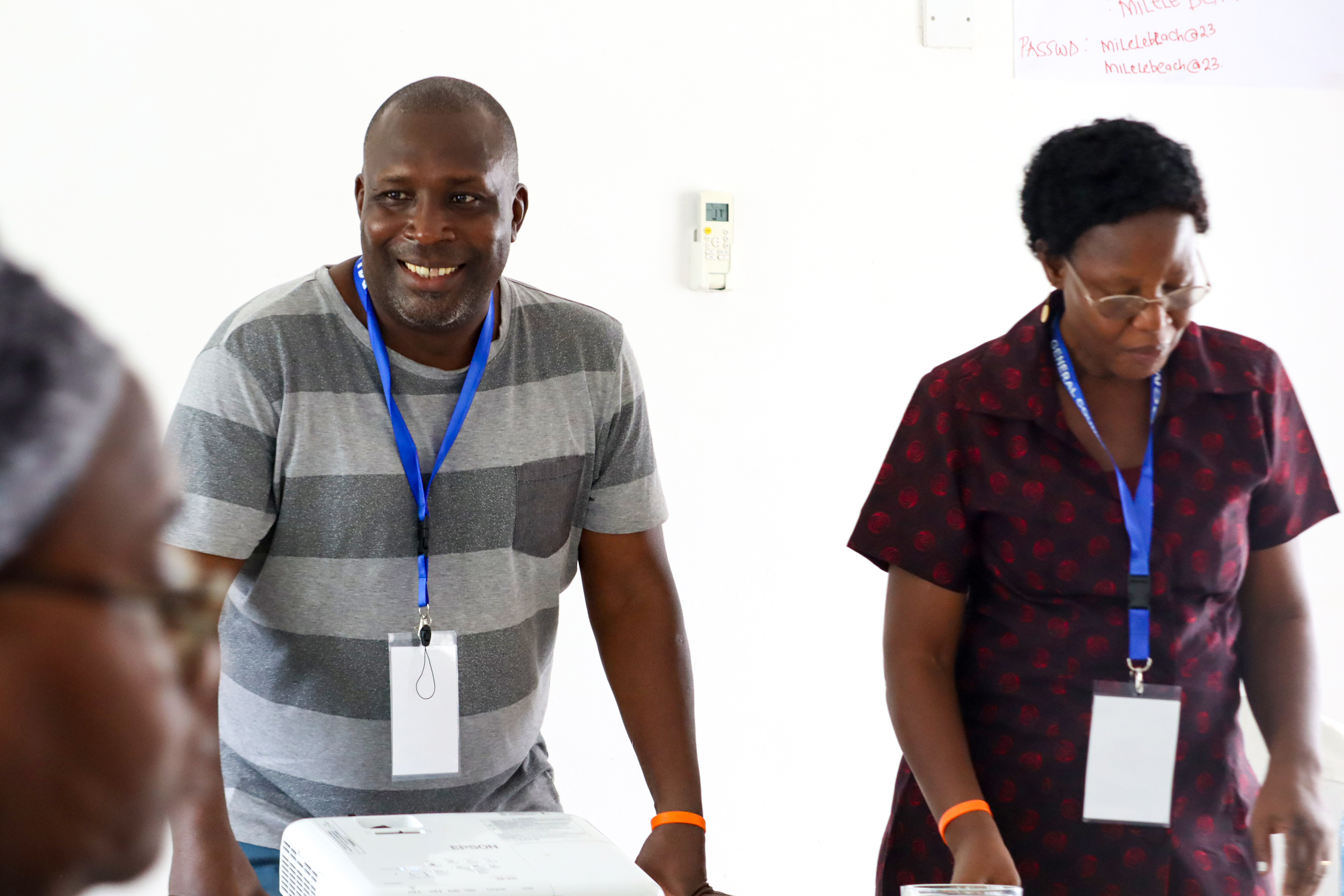
Mr. Nicholas Dola facilitating a session.
“By promoting dialogue and mutual respect within religious communities and the society at large, PROCMURA aims to build a foundation of peace deeply rooted in the morals and religious teachings, and consequently creating an environment where conflicts are less likely to arise,” Mr. Nicholas Dola observed.
Participants also explored the crucial interlinks between climate justice and sustainable peace, which are two inseparable aspects. Numerous studies have demonstrated that climate change can exacerbate resource scarcity, leading to conflicts, particularly in vulnerable regions and, therefore, it is imperative that we comprehend and address these interlinks to ensure a sustainable and peaceful future.
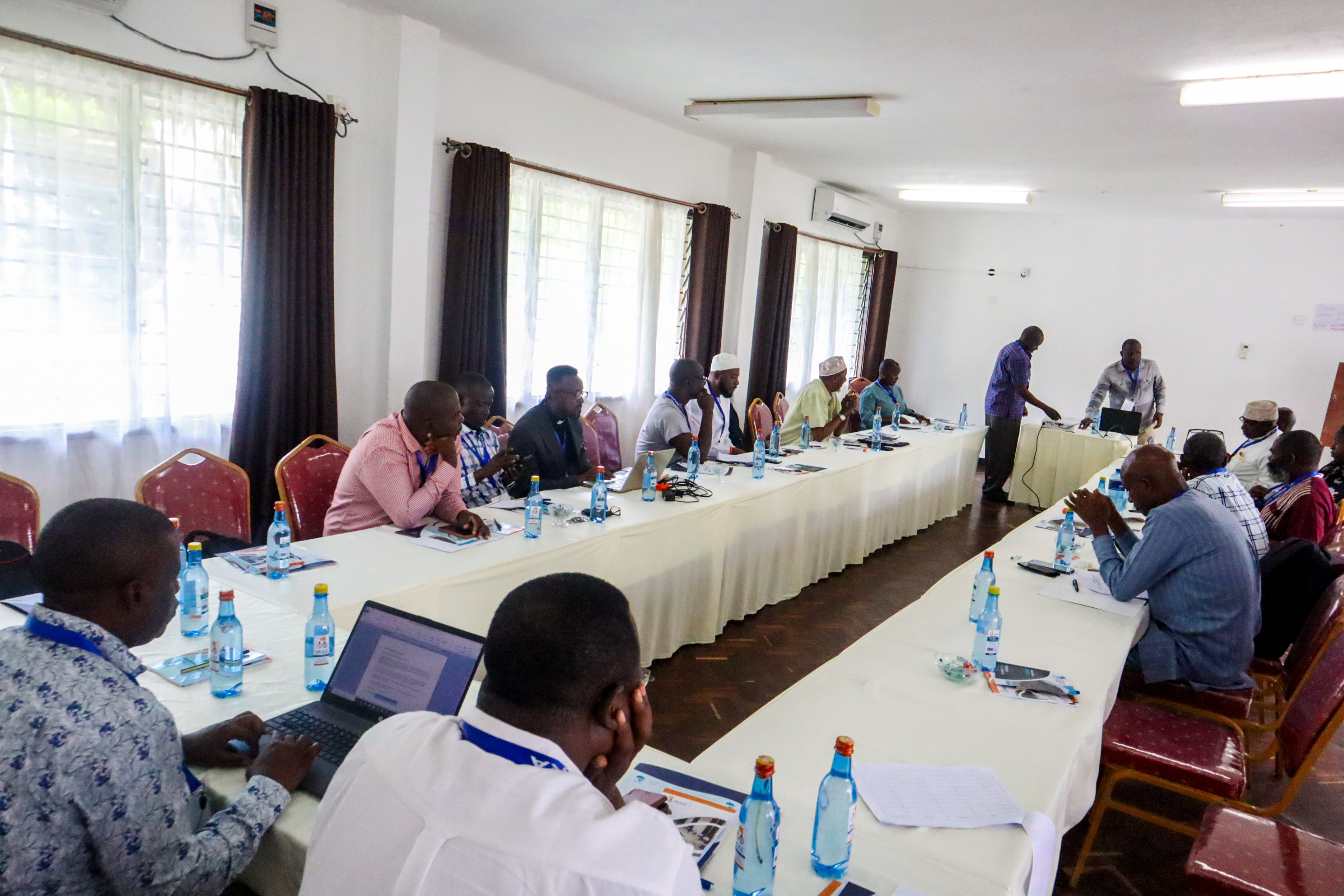
Participants keenly following a presentation.
Without a doubt, any long-term peacebuilding strategy must include climate justice as a central component since sustainable environmental practices are essential for lasting peace. The participants agreed on actionable steps to mitigate climate change impacts in their respective areas.
The "Emerging Global Conflict Trends and their Impacts on Inter-Religious Relations" session provided a sobering analysis of how global conflicts evolve and their potential to strain inter-religious dynamics and relations. As participants agreed, this broadened the scope of their interactions and learning. Dr. Abdalla Kher, one of the facilitators, urged the peace actors and scholars to remain vigilant of these dynamics to mediate and resolve conflicts with religious dimensions effectively.
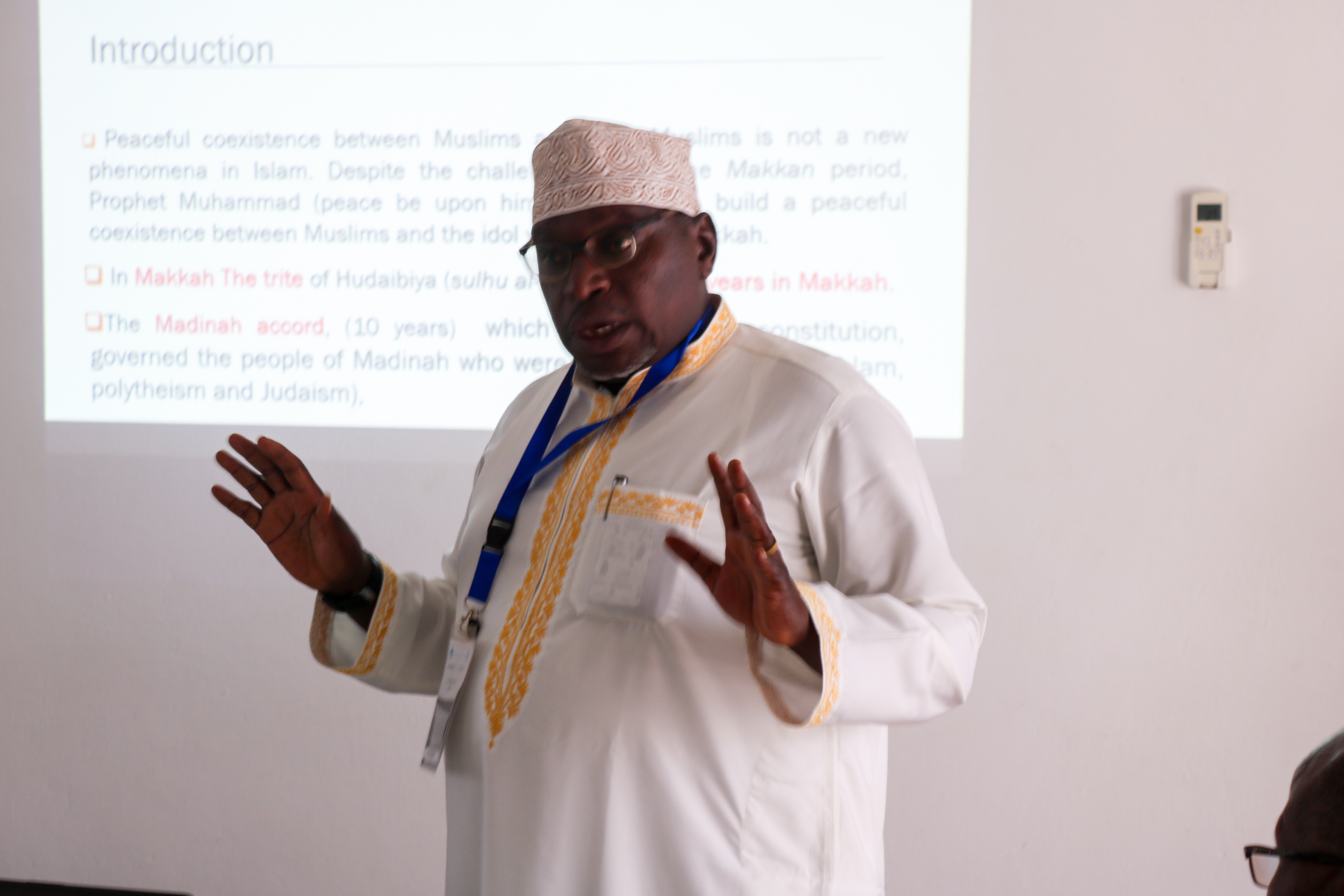
Dr. Abdalla Kher making a presentation on historical Peaceful Coexistence between Christians and Muslims.
One of the facilitators, Dr. Abdalla Kher, offered insight into the historical Peaceful Coexistence between Christians and Muslims. Dr. Kher reminded participants that despite contemporary tensions, there have been numerous periods and regions where Christians and Muslims have lived together peacefully. Drawing on these historical examples, the discussion explored how past strategies for coexistence could inform present-day peacebuilding efforts. The narrative underscored that peaceful coexistence is possible and has been a reality in various contexts throughout history, and society can leverage that to build a cohesive society.
The workshop also featured PROCMURA’s “Do No Harm” approach, which emphasizes the ethical considerations crucial to peacebuilding. This approach advocates interventions that avoid exacerbating existing tensions. By understanding the local context and the potential impacts of their actions, peace actors can ensure that their efforts contribute positively to the peacebuilding processes. This approach reminded participants of the importance of mindful and informed interventions in conflict zones.
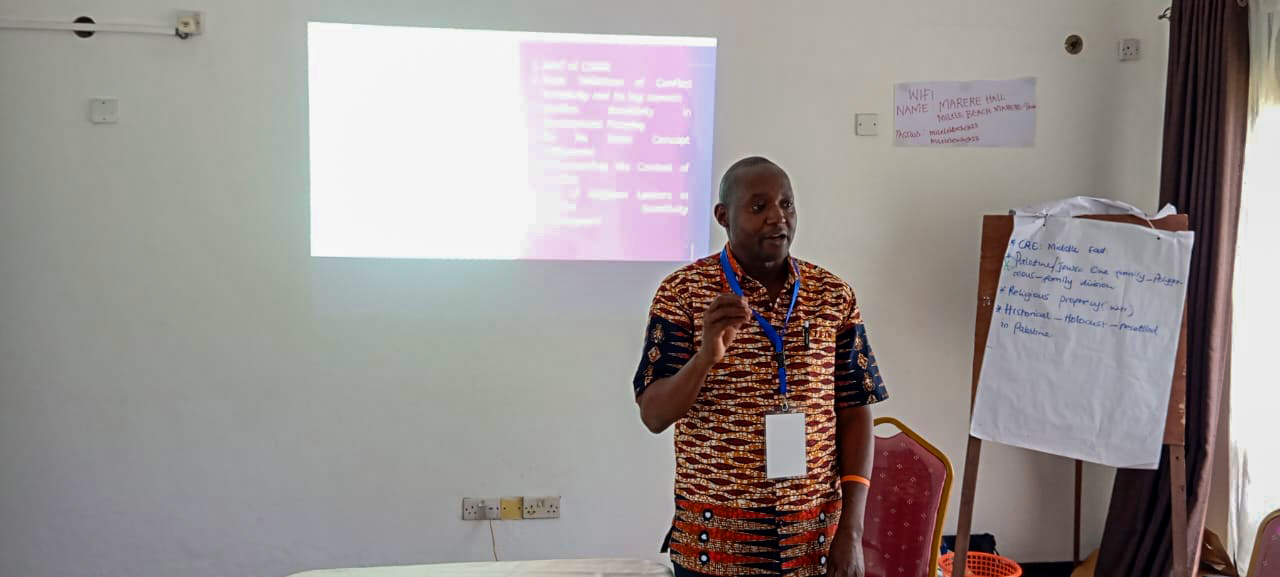
Mr. Richard Mutinda during his presentation.
The two-day workshop that took place at the Milele Beach Hotel in Mombasa, Kenya, during PROCMURA’s 18th General Council, created a perfect platform for the Peace Actors to tackle the complex and often contentious narratives that fuel conflicts, particularly those with deep religious roots. Using the Israel-Palestine conflict as a case study, the presentation demonstrated how religious narratives can be reshaped to support peace rather than division. At the end of the workshop, participants highlighted strategies for countering divisive religious narratives and promoting messages of peace and reconciliation.
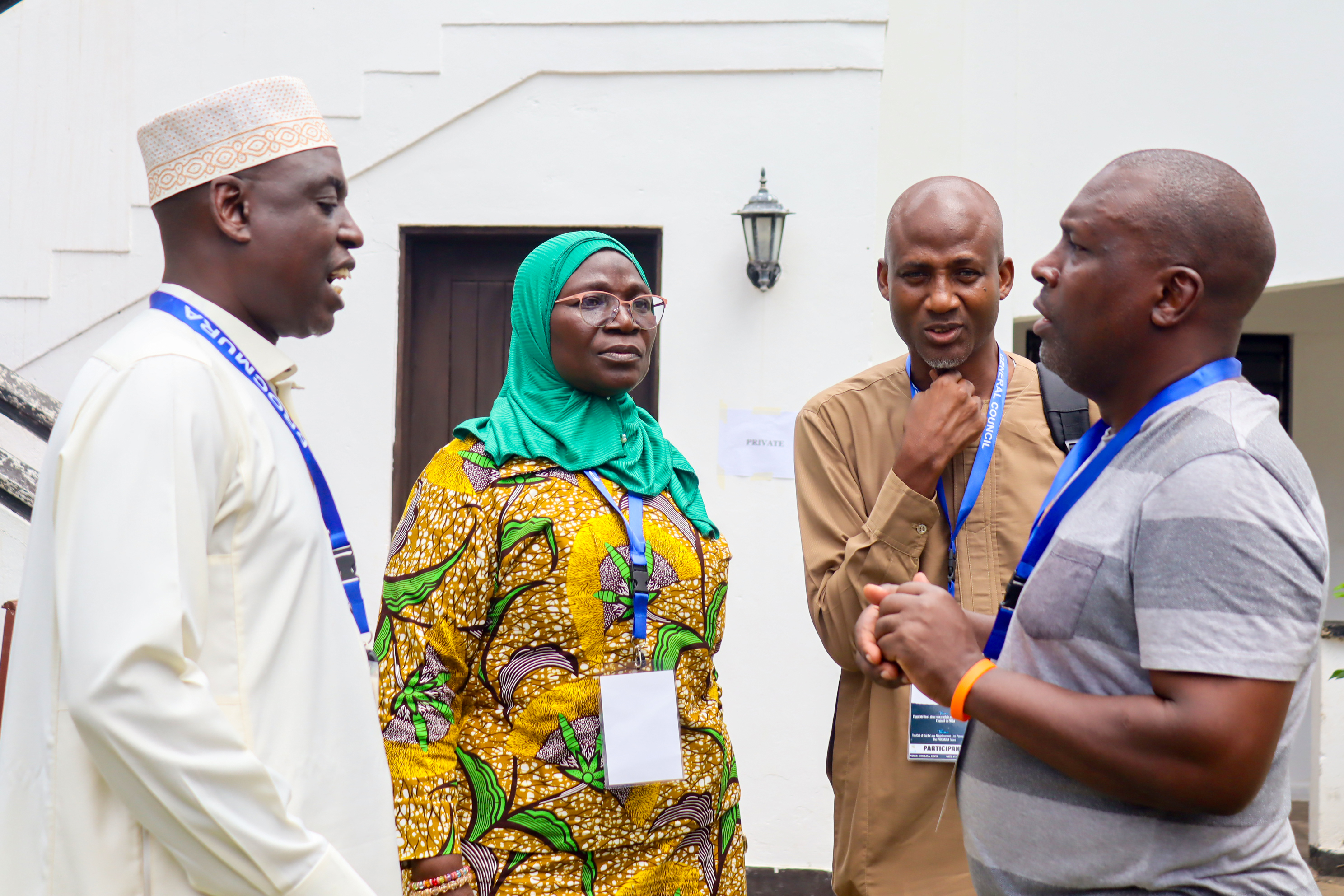
Some of the workshop facilitators.
The PROCMURA workshop concluded with a renewed and inspiring commitment among participants to leverage the insights gained and work collaboratively towards attaining sustainable peace. The diverse range of topics covered provided a comprehensive understanding of the multifaceted nature of peacebuilding in today's world. The workshop fostered a sense of shared purpose and collective responsibility by bringing peace actors and scholars together, re-igniting a sense of hope for a more peaceful and inclusive world.

